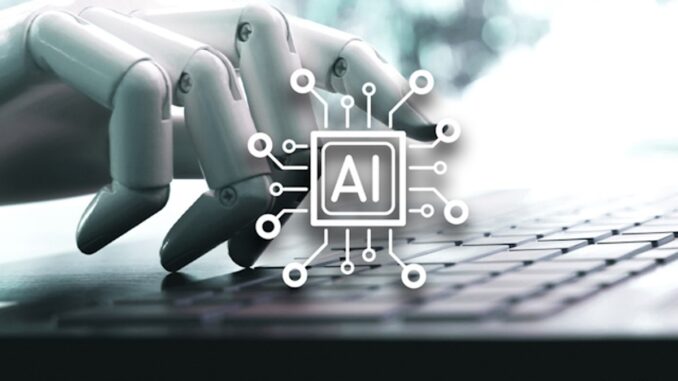
The advent of artificial intelligence (AI) has unlocked a plethora of new business opportunities across various industries.
Here are some key areas where AI is driving innovation and creating opportunities for entrepreneurs and established businesses alike:









### 1. **AI-Powered Content Creation**
– **Content Generation Tools**: Businesses can develop AI software that helps users generate written content, graphics, or even videos. Services like blog writing, social media content generation, and ad copy creation can be automated.
– **Personalization Engines**: Customized marketing content can be created using AI that analyses user preferences and behavior, leading to targeted campaigns that enhance customer engagement.
### 2. **Healthcare Innovations**
– **Telemedicine and Diagnostics**: AI can assist in diagnosing diseases through image recognition (e.g., radiology), predictive analytics for patient monitoring, and telehealth services that provide remote consultations.
– **Drug Discovery**: AI can accelerate the drug development process by analyzing biological data to identify potential drug candidates more quickly.
### 3. **Finance and Investment**
– **Automated Trading Systems**: AI-driven algorithms can analyze market trends and execute trades at optimal times, allowing for high-frequency trading.
– **Fraud Detection and Risk Assessment**: Financial institutions can use AI to detect fraudulent activities and assess credit risk through advanced analytics and behavioral modeling.
### 4. **Retail and E-commerce**
– **Customer Service Automation**: AI chatbots can handle customer inquiries, process orders, and provide support, enhancing the customer experience and reducing operational costs.
– **Supply Chain Optimization**: AI can predict demand trends, optimize inventory management, and improve logistics, reducing costs and improving efficiency.
### 5. **Real Estate Technology**
– **Property Valuation Tools**: AI can analyze real estate market data to provide accurate property appraisals, helping buyers and sellers make informed decisions.
– **Smart Building Systems**: AI can optimize energy usage and enhance security in commercial properties, making buildings more efficient and sustainable.
### 6. **Manufacturing and Industry 4.0**
– **Predictive Maintenance**: AI can analyze sensor data from machinery to predict failures before they occur, reducing downtime and maintenance costs.
– **Quality Control Automation**: AI systems can inspect products for defects in real time, ensuring quality assurance during the manufacturing process.
### 7. **Education Technology**
– **Adaptive Learning Platforms**: AI can personalize learning experiences by adjusting content and pacing based on individual student performance.
– **Administrative Automation**: Institutions can automate administrative tasks such as grading, enrollment, and student assessments using AI, freeing up time for educators.
### 8. **Transportation and Logistics**
– **Autonomous Vehicles**: Companies can explore self-driving technologies for logistics and public transportation, reducing operational costs and increasing efficiency.
– **Route Optimization**: AI can improve delivery efficiency by analyzing traffic patterns and predicting optimal routes in real time.
### 9. **Cybersecurity Solutions**
– **AI-Driven Threat Detection**: Businesses can develop cybersecurity solutions that utilize AI to identify and respond to threats faster than traditional methods.
– **Behavioral Analytics**: AI can monitor user behavior and detect anomalies, increasing the effectiveness of security protocols.
### 10. **Environmental and Sustainability Solutions**
– **Energy Management Systems**: AI can optimize energy consumption in buildings and industries, helping organizations reduce their carbon footprint.
– **Climate Analysis Tools**: AI can analyze environmental data to predict adverse weather patterns or assess the impact of climate change on different regions.
### 11. **Gaming and Entertainment**
– **AI in Game Development**: AI can be used to create adaptive and intelligent non-player characters (NPCs) in video games, offering players a more immersive experience.
– **Content Recommendations**: Streaming services can use AI algorithms to personalize content recommendations for users, enhancing user engagement and retention.
### Conclusion
As AI technologies continue to evolve, they will create even more business opportunities across various sectors. Companies that embrace AI-driven innovations can enhance operational efficiency, deliver personalized services, and gain a competitive edge in the marketplace. However, it’s crucial for businesses to consider the ethical implications of AI and ensure that their implementations are responsible and transparent.


Leave a Reply